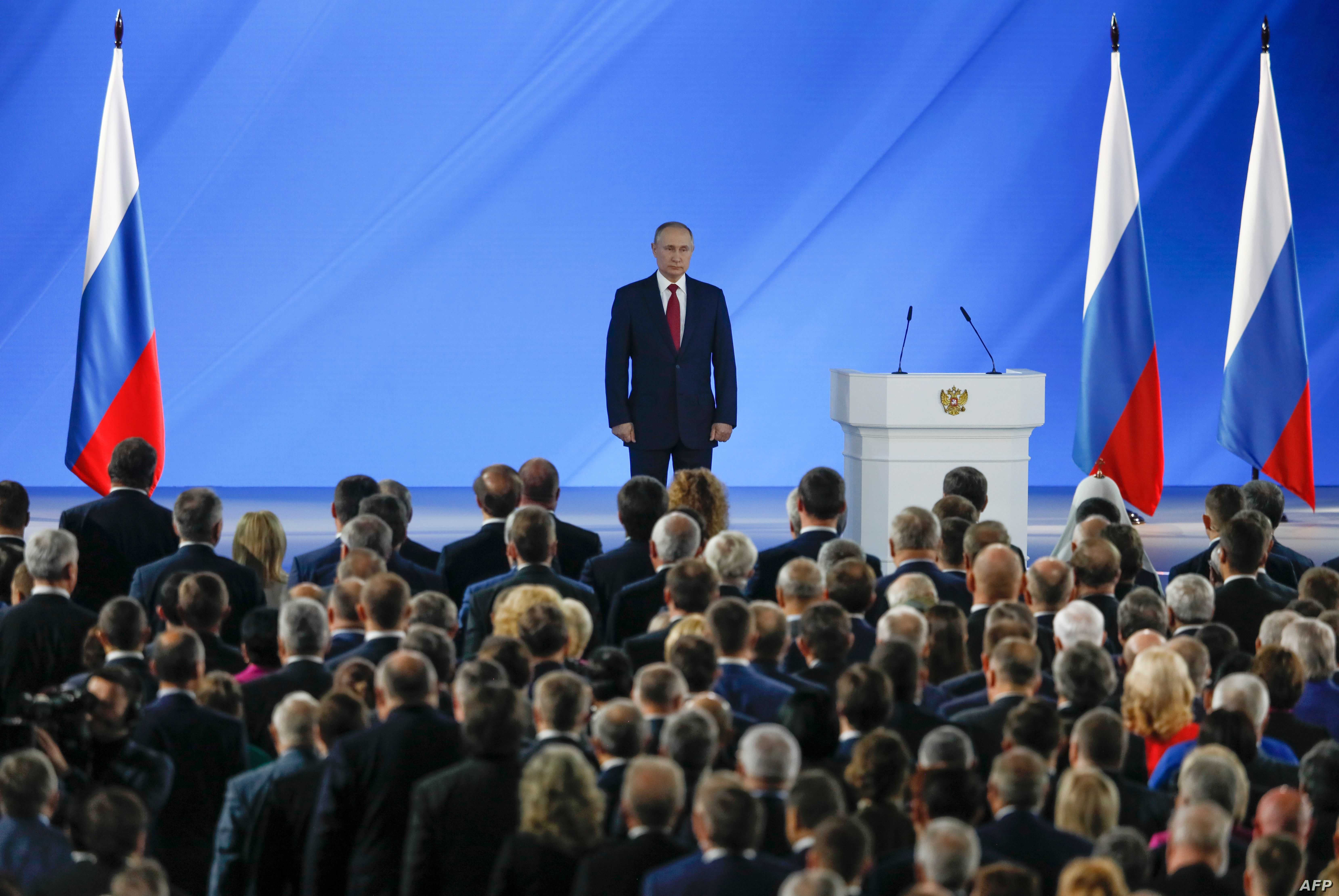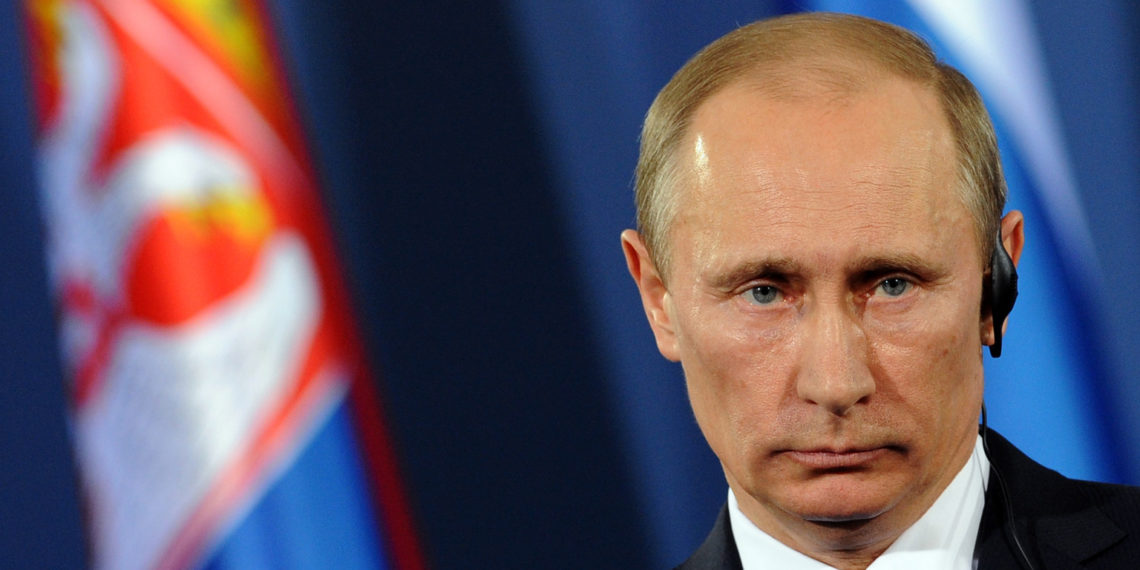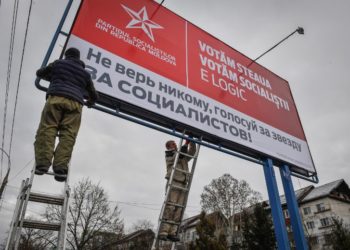Russian President Vladimir Putin took advantage of the coronavirus outbreak to announce his support for a proposal that allows him to evade constitutional term limits for a second time. Under this constitutional “reset,” Putin would be eligible to remain in office until 2036.
The proposed changes would preserve the two-term limit in the constitution but allow Putin to compete again in 2024 under the new legal structure. This decision was sanctioned by all of Russia’s regional parliaments and the Supreme Court. It all but ensures Putin’s candidacy in the next election. Given the regime’s control over electoral processes, it will also ensure his victory.
The rollout of this new strategy was pure pageantry. Russia’s first female in space, Valentina Tereshkova, took the floor in the Duma and proposed two strategies to challenge existing term limits. A debate ensued, and deputies adjourned to consult with the president by phone.
Putin responded by coming to the parliament floor. He gave a prepared speech that reversed his earlier advocacy for new leadership. He proclaimed that he would return to the presidency to address the turbulence in Russia and many countries around the world.
Winner-Take-All Logic of Russia’s System
The timing is important because, despite the president’s popularity, support for the constitutional changes first presented in January 2020 has been soft. Almost 50 percent of Russians reported that they believed that Putin’s intentions to remain in office motivated the initial proposals.
A referendum, scheduled for April 22, will provide Russian citizens the opportunity to express their opposition. While the popular vote is not binding, the need to falsify support to prevent a loss would escalate ongoing but intermittent protest actions across Russia’s large cities.
This uncertainty over leadership succession extended into the political elite who were jockeying for position to succeed Putin. Constitutional reforms that strengthened the presidency reinforced the winner-take-all logic of the system.
The proposed amendments also define more positions of influence under the president, including membership in the newly strengthened National Security Council and the Federation Council, the Upper House of Parliament. These jobs are intended to buy off rivals.
Managing the Opposition
President Putin’s long rule has also provoked recent mass unrest. In the summer and fall, protest was increasing, and Putin’s return to office is likely to galvanize the opposition further.
The strategy undermines the value of elections and is likely to raise the feelings of anger and indignity. Similar events led to broad protests against falsified elections in December 2011. It may also link opposition across the political spectrum and provoke action among Communists and nationalist leaders in the regions as it did in the 2011-2012 protest cycle.
The coronavirus outbreak provided an opening for the Putin administration to manage opposition and shape the next election cycle. The Kremlin’s announcement coincided with growing Russian awareness of the disease and will enable it to take quick action if the political situation deteriorates.

The public health crisis and the social-distancing solution being used around the globe provide a fail-safe excuse for denying protest permits to opposition leaders. Canceling university and high school classes will undermine the capacity of students, the most active opposition to the regime to date, to join in protest events. Even if meetings are held, safety precautions will undermine participation and make the opposition appear foolish.
The threat of the virus also allows the Kremlin to postpone the popular vote on the constitutional reforms until it can shore up support. It is also possible that the government will combine the constitutional reform with a snap parliamentary election to create one high-turnout event. This step will limit the need for multiple falsified votes.
Risky Strategy
The Russian electoral management system designed to manufacture regime victories relies on at-home and online voting processes that obscure both turnout and vote choice. The block-chain process employed in Moscow’s 2019 elections was modified to obscure vote totals and enable manipulation.
Despite these advantages, the strategy is risky. The Russian government moved to prevent the spread of the virus by aggressively limiting contact with those exposed to it. In Moscow, the facial recognition system designed to track protest is being used to identify anyone who breaks the self-quarantine requirements. Yet, concerns are growing that the spread is not being accurately reported in the state-controlled media.
Analysts argue that despite President Putin’s investments in the healthcare system, it is not prepared for the pandemic. Regional medical care is uneven at best. Urban centers, where the spread of the disease is most likely, regularly experience drug shortages. Rumor and false information are sowing confusion, blaming the virus on the West and integrating the call for national stability with responding to the healthcare crisis.
Russia’s Healthcare
The potential for a state failure surrounding the virus should concern President Putin. Since the presidential election in 2004, Putin has promised, and funded with great fanfare, national projects to increase national healthcare. He renewed these promises in conjunction with the January proposal of constitutional reforms. A significant death toll and human suffering will demonstrate the cost of Putin’s 20 years in office.
https://twitter.com/sarafischer/status/1240594847783890944
The timing of these maneuvers also raises the question of what the changes mean for Russia’s future. Putin’s power rests on four pillars: elite loyalty, control of coercive forces, domination of the airwaves, and core support in the small cities and the countryside. Only his core support, which remains genuine but also linked to policy responsiveness, is consistent with Putin’s claims that he governs a democracy.
This decision confirms that he has removed all uncertainty about the authoritarian nature of his regime. It is likely to diminish his core support further and wake up the opposition. The Kremlin will likely increase its reliance on repression and disinformation to maintain power.
In the meantime, corruption and economic stagnation will continue, creating a dismal future for the Putin generation.
Disclaimer: The views and opinions expressed here are those of the author and do not necessarily reflect the editorial position of The Globe Post.





















